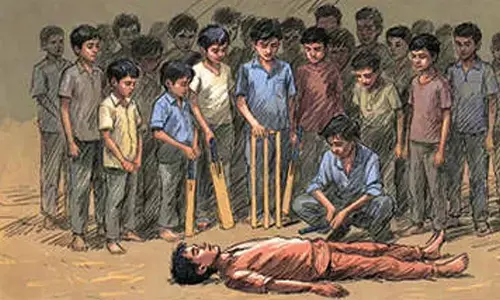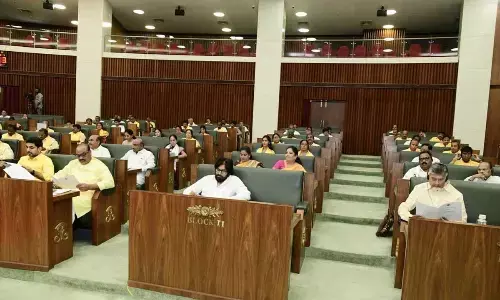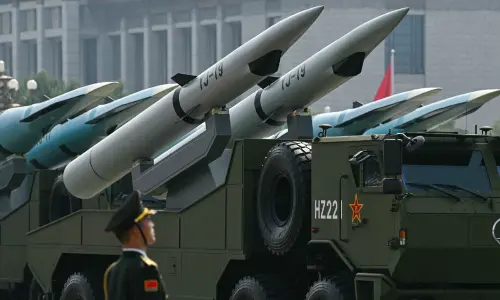Why CIA disclosures went unheeded

We have been through it all – the Julian Assange papers, the Snowden papers, recent disclosures from the British Intelligence and now, millions of documents de-classified by the United States’ Central Intelligence Agency (CIA). More is bound to come in future.
Super spy alleges RSS had sought to incite north-south strife within the Indian Army immediately after independence and had attempted to assassinate the then Chief, General (later Field Marshal) K M Cariappa. There is total silence on this by bloggers and trollers who generally pounce upon anything critical of the government, its leaders and their ideological mentor that RSS is supposed to be. Even Nagpur has not cared to issue a contradiction
We have been through it all – the Julian Assange papers, the Snowden papers, recent disclosures from the British Intelligence and now, millions of documents de-classified by the United States’ Central Intelligence Agency (CIA). More is bound to come in future.
But rest assured of a collective conspiracy of silence. No heads will roll in any country unless it suites those in power. Skeletons may tumble from their cupboards, but their sound will not be heard or felt.
No government anywhere will react. Next, they are under no compulsion to comment on documents de-classified by one country, even if it concerns or affects them. They would not like to be seen confirming or contradicting even if there is counter-evidence. Lastly, why annoy the superpower by taking any stand?
So this must remain confined to media ‘disclosures’ and comments by bloggers on the social media.
The latest avalanche from the CIA was brought about in the last days of Obama administration even as a controversy raged over the agency’s going public on Russia’s alleged interference and attempts to influence last November’s American presidential election in Donald Trump’s favour.
Expectedly, Trump arrived in White House like a raging bull calling the CIA names. But realising the key role the agency plays in the US and wherever American interests are supposedly involved, he quickly moved to make peace with its brass saying he was “1000 per cent with you” and adding for good measure “I love you. I respect you.”
This will hopefully allow Trump to go about his task, leaving the superspy agency of the superpower do its task, at home and worldwide in the “Americans fist,” era. The unstated part is, forget what we did and what happened in the past – move on.
But what about those who figured in the documents? Like the Assange leaks, there will be no confirmation or contradiction – only speculation. One wears the cap if it fits and if that is convenient.
As for India, we are told that the CIA knew as far back as 1948 that Netaji Subhas Chandra Bose had been killed in the air-crash that took place in 1945. Not that it would have helped much, but Indians could have been spared long years of declaring him dead through various inquiry commissions and counter-attempts to keep him alive.
The latter attempts have gained greater momentum in the last couple of years under the current political dispensation when anything to smear Jawaharlal Nehru and the Congress sells. Indeed, Netaji has become a lucrative cottage industry for many. So why cite the CIA report, for whatever its worth, to contradict it or engage in we-told-you-so?
A document alleges that the Rashtriya Swayamsewak Sangh (RSS) had sought to incite north-south strife within the Indian Army immediately after independence and had attempted to assassinate the then Chief, General (later Field Marshal) K M Cariappa.
There is total silence on this by bloggers and trollers who generally pounce upon anything critical of the government, its leaders and their ideological mentor that RSS is supposed to be. Even Nagpur has not cared to issue a contradiction.
Old-timers would recall the agency’s much-written-about role in taking deep interest and even get involved in foreign lands. With that backdrop, it would be interesting to look at documents pertaining to South Asia since many of the documents refer to momentous events of the 1970s and 1980s.
It is well-known that events leading to the India-Pakistan conflict of 1971 and birth of Bangladesh were part of the cold war interplay wherein the US and Britain had tilted towards Pakistan, fearing the latter’s break-up should India, troubled by huge refugee influx from then East Pakistan, launch a war. The US was also keen to consolidate its new-found friendship with China that had been facilitated by Pakistan.
It is equally well-known that the Nixon-Kissinger duo hated Indian premier Indira Gandhi’s guts and the two had in private conversations, later made public, had called her names. She was seen as a war-monger, which is a travesty since she had done everything through months of diplomatic effort, sending Jayapakash Narayan and going herself to persuade Nixon, to tell the world of the problems India was facing. But India’s efforts to be heard through the entire second half of 1971 were thwarted by these powers even as their media and their intelligentsia were showing greater awareness and empathising with the sufferings that the 1971 events had unleashed.
It is a travesty because the CIA was branding her so. Now CIA papers tell us that the then Soviet Union was also worried about India’s “dark hints” about a military intervention and that Moscow had conveyed to Washington that it had ‘disapproved’ of any such Indian designs.
The CIA informed Nixon in July 1971: “The Soviets…appear in fact to be troubled by India’s dark hints of military intervention (in East Pakistan), and have intensified their efforts to prevent another war between India and Pakistan like the one in 1965.”
“On July 9 (1971) and authoritative commentary in Izvestia provided a pointed reminder to India and Pakistan of Moscow’s desire that war be avoided on the subcontinent,” a briefing note to Nixon said.
The dates of the two documents must be noted. For, precisely a month later, on August 9, 1971, India and the USSR signed the Treaty of Peace, Friendship and Cooperation.
We do not have any insight into the US’ thinking after the treaty was signed. We do not know if the treaty made the US, and with that Britain and possibly China, change their stance. Were they all so naïve, collectively and/or individually, so as to believe that India, bolstered by this treaty, could be ignored the way these powers did? There was this most blatant attempt at arm-twisting by the Nixon administration that sent USS Enterprise into the Bay of Bengal at the height of the conflict. But that did not prevent Indira and the armed forces under her to capture Dhaka in a record time.
There is room to believe that all along, Nixon chose to disregard even CIA’s warnings when told that foreign aid committed to India to cope with the refugee influx was far below the needed funds.
The agency’s papers point out that there was a commitment of $120 million when $400 million was needed to care for 6.5 million refugees for just six months. “The presence of 5 million refugees in West Bengal alone has produced a sharp increase in food prices and substantial drops in wages,” the CIA had cautioned.
Nixon also ignored the CIA’s warnings about developments in Pakistan. On March 2 1971, the CIA informed him that East Pakistanis might react sharply to the postponement of the National Assembly session, posing further problems for then President Yahya Khan.
Yahya urged the parties to come together but failed to get “a major west Pakistani party” to attend. It did not name the Pakistan Peoples’ Party (PPP) of Z A Bhutto, whose overweening ambition had closed the door for any compromise and justice done to the people East Pakistan.
“Yahya is aware that he risks a strong East Pakistani reaction, but he presumably decided that the alternative – disorders in West Pakistan and unrest within the predominantly West Pakistani army – would be worse. Should Mujib taken a strong stand, possibly even proclaiming East Pakistan’s independence – Yahya could face another dilemma: whether to let East Pakistan secede or try to hold the country together by force,” the CIA noted.
The CIA was prophetic, if ineffective, in influencing the course of events. These seem more like eyewash accounts. The real intriguing actions of the US in engineering events resulting in their planned outcomes developing into several chain reactions of their intents may never be disclosed for what they call, not in the interest of the US citizens to make known. Should one dig into history to learn from it?








